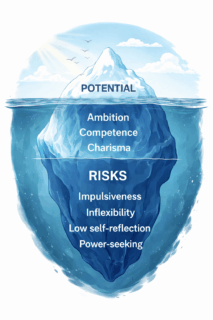
The ability to adapt has become a critical asset in today’s professional landscape. Whether motivated by a desire to explore a new industry, the demands of shifting job market, or personal growth ambitions, many individuals are finding themselves at a crossroads, contemplating their next career move.
At the heart of this transition lie two transformative concepts: upskilling and reskilling. These strategies provide a pathway to not only remain competitive but also thrive in an evolving workforce.
Upskilling vs Reskilling: What’s the difference?
Upskilling focuses on enhancing employees’ existing skill sets to help them perform better in their current roles or move up within their career paths.
Reskilling involves training employees in entirely new skills to enable them to transition into different roles within the organization.
Why are upskilling and reskilling critical today?
The future of work is being reshaped by automation, digital transformation, and global trends. For career changers, this environment presents both challenges and opportunities:
- Staying competitive: by proactively adopting upskilling and reskilling strategies, professionals can align themselves with market demands, ensuring they remain valuable assets to current or future employers.
- Expanding opportunities: reskilling opens doors to entirely new industries, allowing individuals to pivot into growing fields like tech, renewable energy, or healthcare.
- Future-proofing careers: continuous learning helps workers anticipate and prepare for changes, reducing the risk of becoming obsolete in a fast-paced job market.
What can companies do?
For organizations, upskilling and reskilling employees isn’t just about survival – it’s about thriving in the future of work. Businesses can:
- Invest in training programs: offer workshops, online courses, and mentorship opportunities tailored to industry needs.
- Conduct skills assessments: identify gaps and design targeted development initiatives.
- Foster growth culture: encourage employees to view learning as an ongoing journey, not a one-time event.
The role of assessment in upskilling and reskilling:
At Tripod Link, we understand that identifying the right development paths begins with thorough assessment. Our tools and expertise help organization:
- Evaluate current skills;
- Identify potential leaders and high-potential employees
- Create personalized development plans tailored to individual and organizational needs.
Upskilling and reskilling are essential strategies for adapting to a rapidly evolving job market. By investing in skill development, conducting assessments, and fostering a culture of continuous learning, organizations can empower employees to thrive while ensuring long-term business success.







